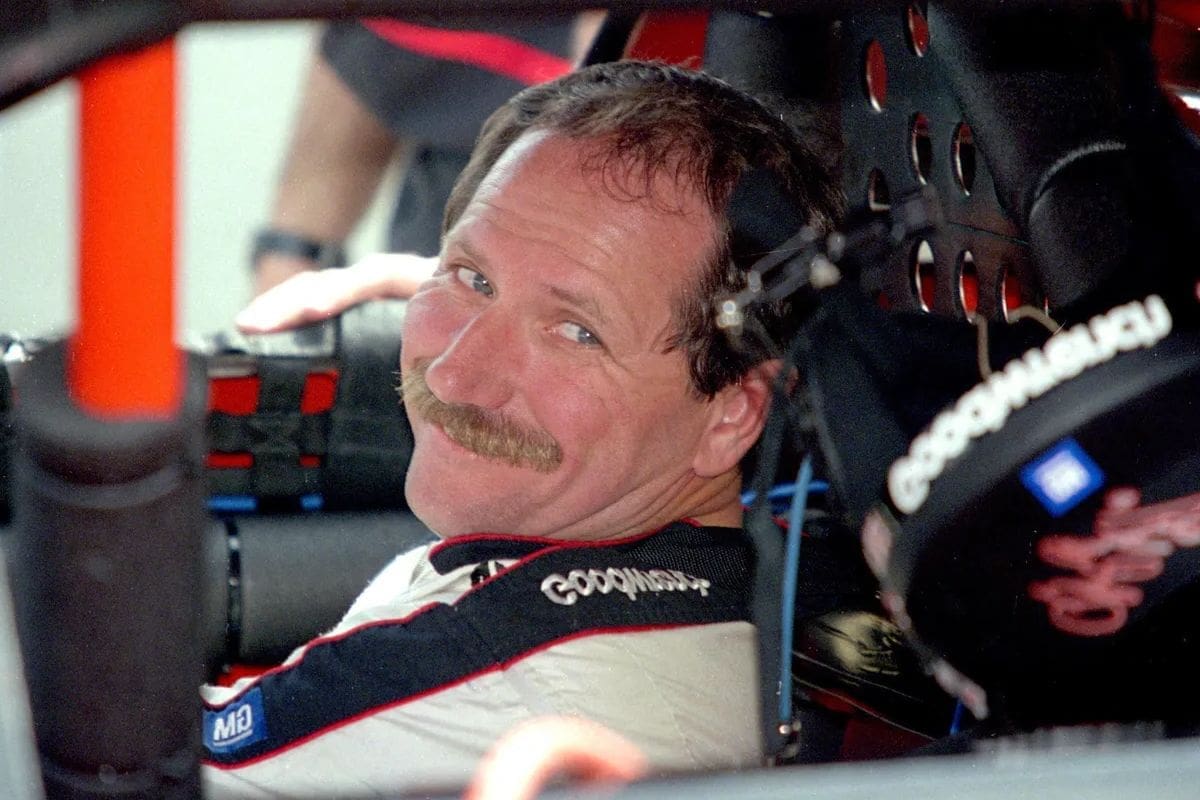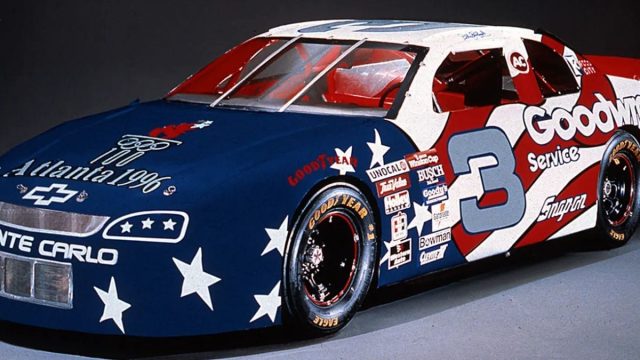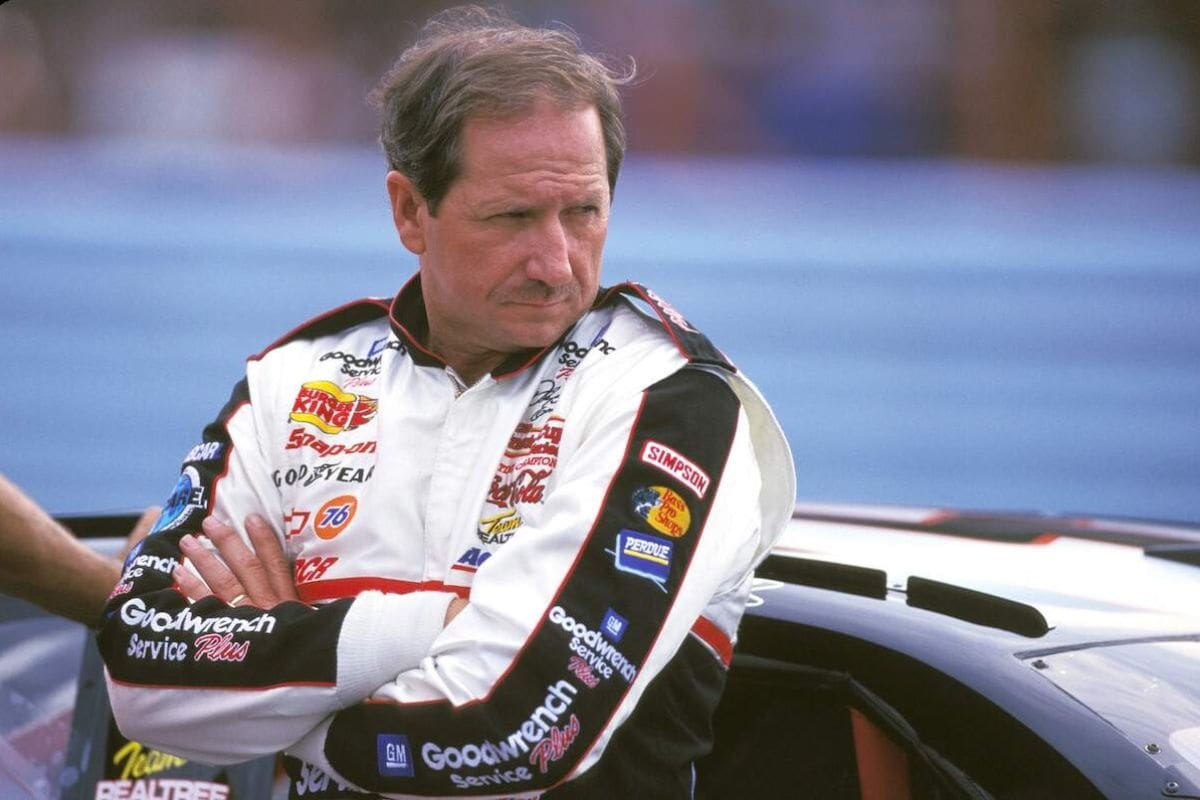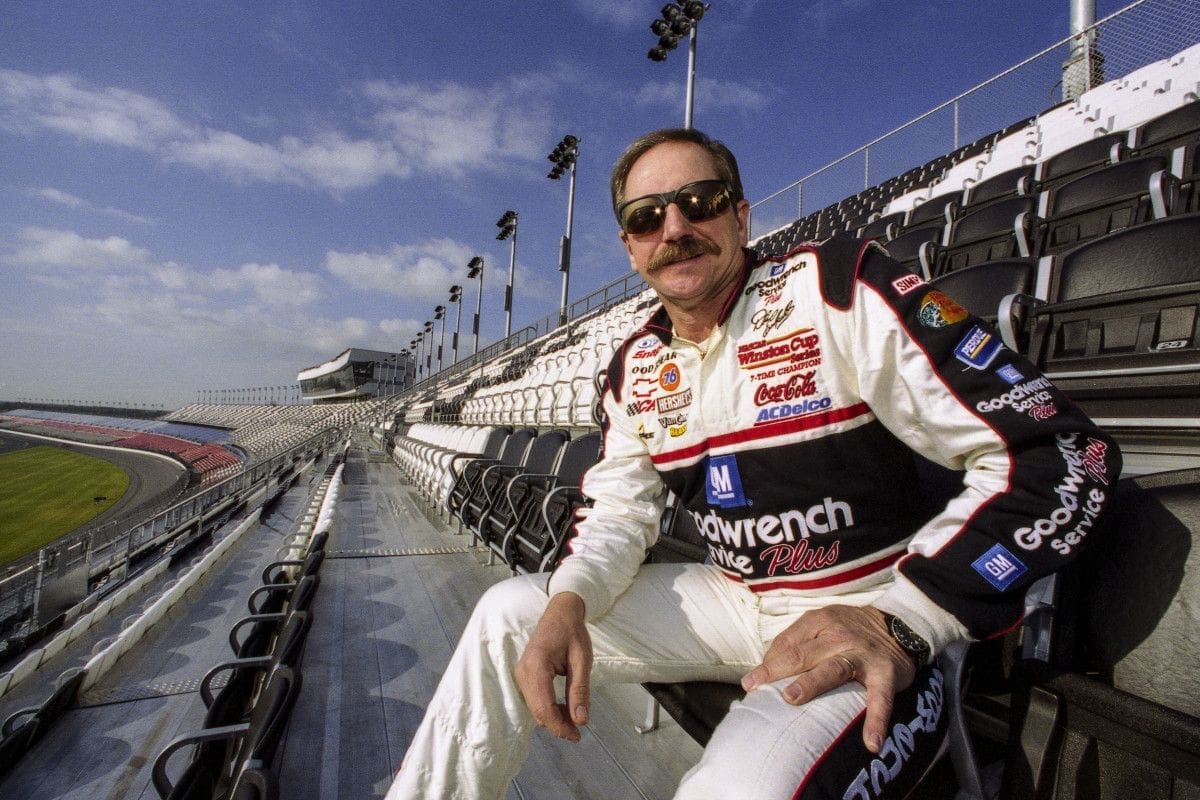Olympics Demanded 1M Dollars From Dale Sr. in 1996: The 1996 demand by the Olympic Committee for one million dollars from Dale Earnhardt Sr. raised eyebrows and illuminated the underlying tensions between traditional motorsport and the evolving landscape of sponsorship in athletics. Earnhardt’s disbelief revealed a deeper frustration with a increasing ‘pay to play‘ mentality that threatened the integrity of competitive spirit. As stakeholders grappled with the implications of such financial expectations, the incident served as a crucial moment in understanding the commercialization of sports. What might this clash of cultures reveal about the future of athletics and its core values?
Key Highlights
- The Olympics requested a $1 million fee from Dale Earnhardt to feature their brand on his NASCAR car during the 1996 Olympics.
- Earnhardt reacted with disbelief and humor, questioning the fairness of the hefty financial demand.
- The negotiation highlighted a power imbalance, with the Olympic committee viewing their brand as unmatched in value.
- A creative funding strategy was developed by Joe Mattes, securing $700,000 from Revell to help meet the fee.
Background on the Potential Partnership
Amid the rush of the 1996 Olympics, Dale Earnhardt‘s team sought to capitalize on his immense popularity by exploring a partnership that would intertwine the excitement of NASCAR with the global appeal of the Olympic brand. This endeavor was representative of a momentous occasion in the convergence of sports marketing, where the fervor of two distinct sporting domains could potentially amplify both brands’ visibility.
Dale Earnhardt, having secured seven championships by this time, represented a formidable force in the racing community, making him an attractive candidate for such a collaboration. The idea was to feature the Olympic brand prominently on Earnhardt’s car, thereby leveraging the Olympics’ extensive reach to improve NASCAR’s profile on a global stage.
The anticipated partnership was not merely about logo placement; it was a tactical move aimed at tapping into the Olympics’ massive audience while simultaneously offering the Olympic brand a unique entry into the motorsports demographic. However, the potential partnership was not without its complexities.
The financial requirements posed by the Olympics, including a demand for a substantial investment, highlighted the tension inherent in sports collaborations. This interplay of interests emphasized the evolving landscape of sponsorships during the 1990s, where the notion of ‘pay to play’ began to gain prominence, foreshadowing the intricate negotiations that would follow.
Negotiation Challenges
Negotiation challenges arose when Olympic officials imposed a staggering fee of one million dollars for the proposed collaboration with Dale Earnhardt, creating considerable tension during discussions. This hefty demand revealed the disparities in perceived value between the Olympics and the racing legend, showcasing a fundamental clash of expectations.
As Mattes recounted, the atmosphere shifted dramatically as officials asserted their position: “This is pay to play.” Such declarations not only emphasized the urgency of the Olympic brand but also highlighted the critical stakes associated with their event.
“For the Olympics, that guy looked at me and he said, “Here’s the deal, I don’t know where you’re from or how big you think Dale Earnhardt is, We’ve been around a little bit longer than Dale Earnhardt and this is the Olympics and this is pay to play. Nobody sits in this office to do us a favor.”
“I said, “Okay what’s the cost to play?” He said, “you come back here with a million dollars and that’s a prepaid advance, we have to earn that out and I’ll give you a deal.” – Mattes
The challenge was further compounded by the following factors:
- Unequal Advantage: The Olympics operated from a position of power, viewing their brand as unmatched and demanding considerable financial commitment.
- Diminished Trust: The high fee fostered skepticism regarding the intentions of Olympic officials, creating an environment of mistrust.
While the prospect of partnership with a global entity like the Olympics was enticing, the negotiations became a litmus test for both parties. Ultimately, the ability to navigate these obstacles would determine not only the fate of the proposed collaboration but also the future dynamics of sports partnerships.
Dale Earnhardt Sr.’s Reaction
Dale Earnhardt Sr.’s immediate reaction to the million-dollar demand showed his disbelief and frustration. He openly expressed his thoughts on the fee with a mix of humor and incredulity. His response, “You dumb Yankee? What the heck! I mean I have to give a million bucks up front? […] No, that’s not going to happen,” encapsulated not only his astonishment but also his refusal to entertain what he perceived as an outrageous expectation.
Earnhardt’s reaction was representative of his larger-than-life personality and his straightforward approach to negotiating. He was not one to shy away from addressing perceived absurdities, especially when it came to financial matters. The casual yet pointed manner in which he addressed Mattes reflected his deep-seated values and belief in fair play. For Earnhardt, the concept of paying a hefty sum upfront without any tangible benefit or guarantee was not only unappealing but also contrary to the spirit of competition he embodied.
While the Olympics sought to capitalize on Earnhardt’s image and influence, he remained steadfast in his principles, prioritizing integrity over commercial interests. His incredulity served as a reminder that, in the domain of sports, authenticity often takes precedence over financial transactions, setting the stage for a negotiation that would require careful consideration and tactical thinking.
Solution and Final Deal
In a groundbreaking approach to resolving the financial demands of the Olympics, Joe Mattes successfully brokered a partnership with Revell to generate the necessary funds through a die-cast model of Earnhardt’s iconic 1996 Olympics car. This creative strategy not only addressed the immediate financial concerns but also tapped into the nostalgia and passion that surrounds NASCAR and its legendary figures.
Mattes adeptly negotiated an upfront payment of $700,000 from Revell, which greatly alleviated the burden of the $1 million requirement. However, the success of this endeavor hinged on a delicate negotiation with Dale Earnhardt Sr. To secure the remaining $300,000, Mattes had to navigate Earnhardt’s initial displeasure while emphasizing the long-term benefits of the sponsorship.
“[I thought] I’ll go back and talk Dale in to give me 300 Grand. […] I got the 700 Grand I go back and I’m thinking he’s happy he’s still mad.” – Mattes
Ultimately, their combined efforts culminated in the necessary funding to secure Olympic sponsorship, a deal that not only demonstrated the power of collaboration but also highlighted the deep-rooted connection between sports and commerce.
The thrill of seeing Earnhardt’s legacy immortalized in die-cast form. The emotional weight of supporting a sporting event as grand as the Olympics. The satisfaction of overcoming financial obstacles through creative partnerships.

News in Brief: Olympics Demanded 1M Dollars From Dale Sr. in 1996
The 1996 demand for one million dollars from Dale Earnhardt Sr. by the Olympic Committee exemplified the evolving landscape of sports sponsorship, revealing a pronounced contrast between NASCAR’s grassroots ethos and the commercial imperatives of the Olympic movement.
This incident not only emphasized the financial strains faced by athletes and stakeholders but also highlighted the ongoing struggle to maintain authenticity in competitive sports.
Ultimately, the clash of values initiated a dialogue about the nature of sponsorship in contemporary athletics.
ALSO READ: Dale Earnhardt Sr. and Rusty Wallace Feud: Dale Jr. Goes Down Memory Lane



